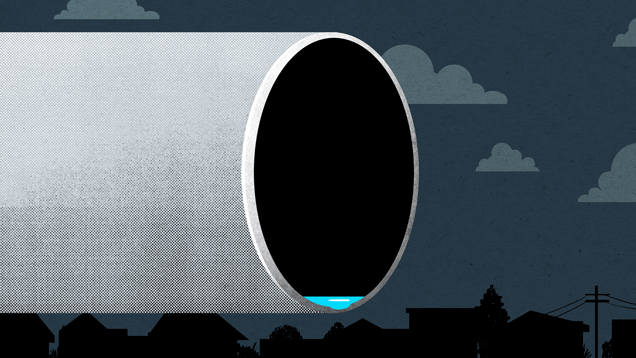My job depends on the internet. Yours probably does too. But for such a vital technology, the US doesn’t have a solid way to expand its internet infrastructure. Now, a pair of congresspeople — one a Democrat and one a Republican — are proposing a new way to ensure the web’s health.
The bill is called the Broadband Conduit Deployment Act of 2015, and it was introduced in Congress last week, as the Washington Post’s Brian Fung reported, by Anna Eshoo (D-Calif.) and Greg Walden (R-Ore.) with 26 co-sponsors. It’s a lot more exciting than it sounds; if successful, it could solve a major infrastructure issue that’s only going to get worse over the next few years (and decades) — namely, how to modernize the internet cables that bring Americans the web.
Here’s the problem: The internet connections between two cities — a.k.a. Tier One links — are all fast and modern. Even the cables that carry the web to local hubs — a.k.a. Tier Two — might be good. But the “last mile,” the links that carry the internet to actual homes, are usually incredibly outdated; as Adam Clark Estes recently explained, the last kilometre of internet is usually made of old-school copper wiring that just isn’t equipped to carry what we’re asking it to carry (terabytes of streaming video, for example).
In a perfect world, all of those old copper cables would be modernised with plastic piping carrying fibre optic cables; lightning-fast broadband for all! But telecom companies are unwilling to foot the bill, and US state governments don’t have a very clear mandate to improve the country’s ageing internet pipes. “Today our information highways are just as important as our interstate highways,” Eshoo said in a statement put out by her office, pointing out that an executive order supporting the idea helped, but didn’t really affect change. “States need more incentive to implement this common-sense policy.”
What Eshoo is proposing is fairly simple. Any project to build a new highway or improve an existing highway across the US would be required to include pipes for fibre optic cables if the project received any kind of Federal funding (and if there’s demonstrable need for internet nearby within 15 years). This is called, appropriately, “dig once,” and it’s a sensible idea — but difficult to convince already budget-strapped projects to adhere to. Eshoo wants to make it law, literally laying the groundwork for the faster internet speeds of the future.
There are drawbacks, of course: The new rule would make these projects more expensive, as The Hill points out. But seen in a macro way, it’s far cheaper to include broadband pipes when the road is being dug, rather than digging it back up to lay them in a few years. According to The Hill, the bill is going to be debated on Wednesday before a subcommittee hearing, but the fact that it already has almost 30 co-sponsors bodes well.
We’ll have to wait and see whether putting the internet onus on federally-funded highway construction projects will be the key that unlocks faster connectivity for more people.
[Congresswoman Anna Eshoo; h/t WaPo]
Illustrations by Jim Cook.
